
When the front door of the plane opened, a tongue of fire seemed to attack us. We feared that the sun would melt, too, any metal object, parked on the track of an equally burning cement.
“On behalf of Air France, we welcome you to Kinshasa, where the outside temperature is 44 degrees and local time is 2.30 p.m.”
I was in Zaire, the former Belgian Congo, the current Democratic Republic of the Congo. A place in the heart of Africa where, unusually, the heavyweight world championship would be held between champion George Foreman and Muhammad Ali. The only boxer in the universe capable of getting a government, that of Mobutu, to spend more than fifteen million dollars between exchanges — five million dollars each — and another five of all other requirements: transmission equipment, hotels, transfers, logistics...
On the way to the Havre de Paix hotel, together with the special envoy of the newspaper La Nación, Emilio Ferés, whom I remember with affection, you could see malnourished and scattered trees. The earth opened up in cracks of dryness. And under the burning sun the air was heavy.
The villorrios near the road looked sad, humble and promiscuous. Walking or cycling, they went from one place to another to fulfill their duties. Thin, bony men. Women with their heads covered in spiral fabric and colorful and long skirts that did not prevent them from noticing their wide and lordotic hips.
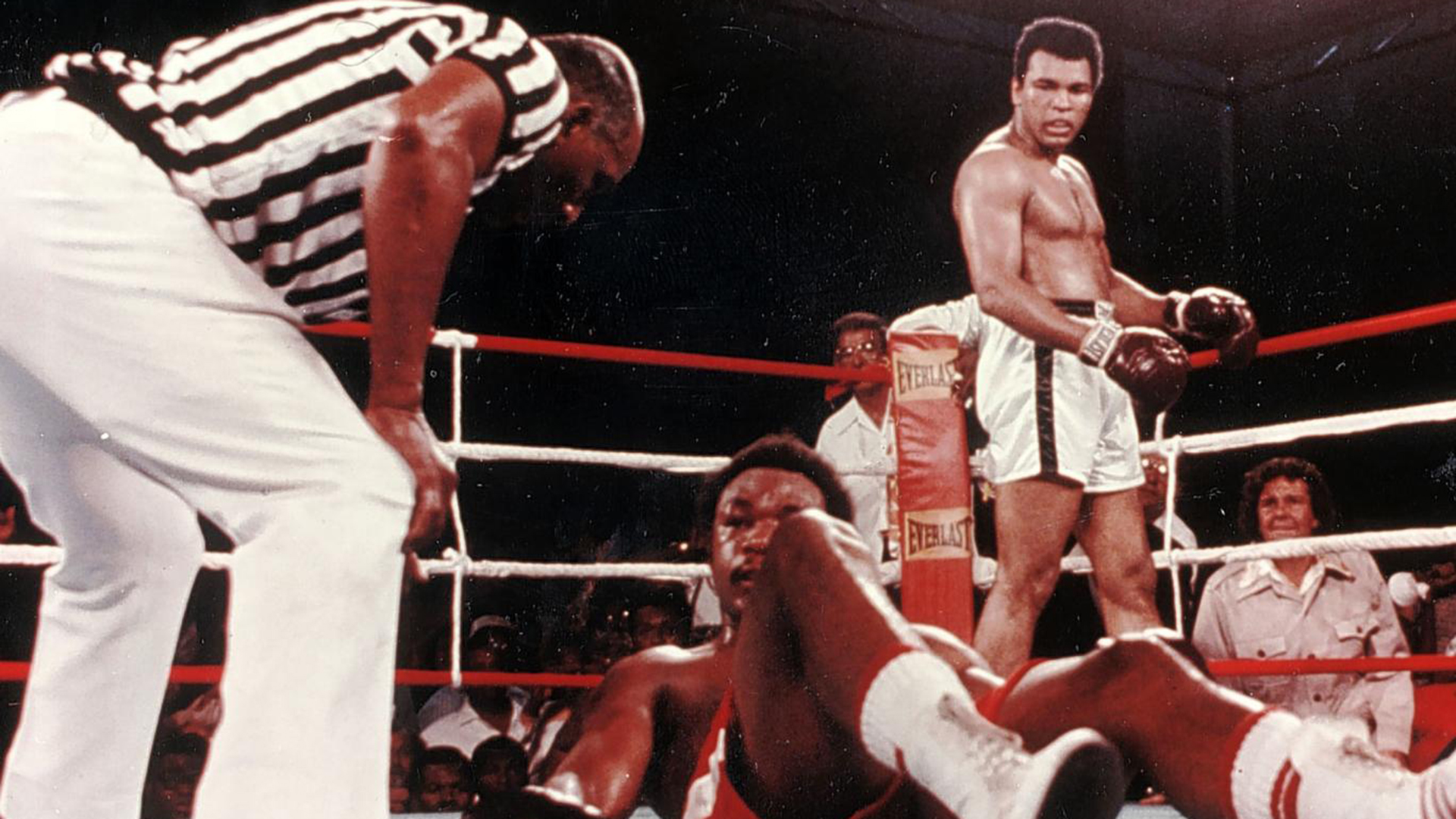
Arriving at the hotel, in the center, a few honks, many screams and more bikes than the Peugeot or Citroen, unequivocal signs of Belgian colonization. One of the bloodiest suffered by raped Africa.
- What a pleasure to see you, you will be indelible for us Argentines. Believe me that you are loved there, in Buenos Aires... -, I told Sandy Saddler and Archie Moore. Two monsters who were world champions, the technical directors of George Foreman.
- Oh yes, Buenos Aires, Luna Park, Perón-, exclaimed Archie who swept everything they put on him and managed to get General Perón to go to all their fights at Luna Park. Moreover, that he received them back in 1951 with admiration in Olivos.
We were at the Intercontinental Hotel, where Foreman lived with his team. Old Archie, now fat and gray-haired, was a warm and kind man. Sandy, author of the famous, “bolo-punch” with which he sank your liver or sent you to the hospital, was more demure. After evoking the unforgettable nights of the Moon, the chorizo steaks of La Cabaña, the cafés on Calle Corrientes and some other places of Buenos Aires nightlife such as Tabarís or Marabú, I tried the dialogue.
- Masters, Foreman is favorite, his power is higher than Ali's, he is younger, he has less deterioration and comes from crushing Joe Frazier and Ken Norton literally passed them over. Do you think it will be the same with Ali?
— “See young journalist, if everything is normal, if there is no clash of heads, a wound, an injury, if everything is normal, we must win by knockout, I have no doubt,” said Archie Moore, the former long-lived world champion of the medium-heavy who, despite losing, already at 42 years old with Rocky Marciano transformed his head into an oval mass, like a rugby ball, after 15 tremendous rounds.
- “We respect Ali's technique, but there is no way to stop George when he launches into attack,” added Sandy, who with a hook to his liver hung Alfredo Prada on the ropes looking at General... -
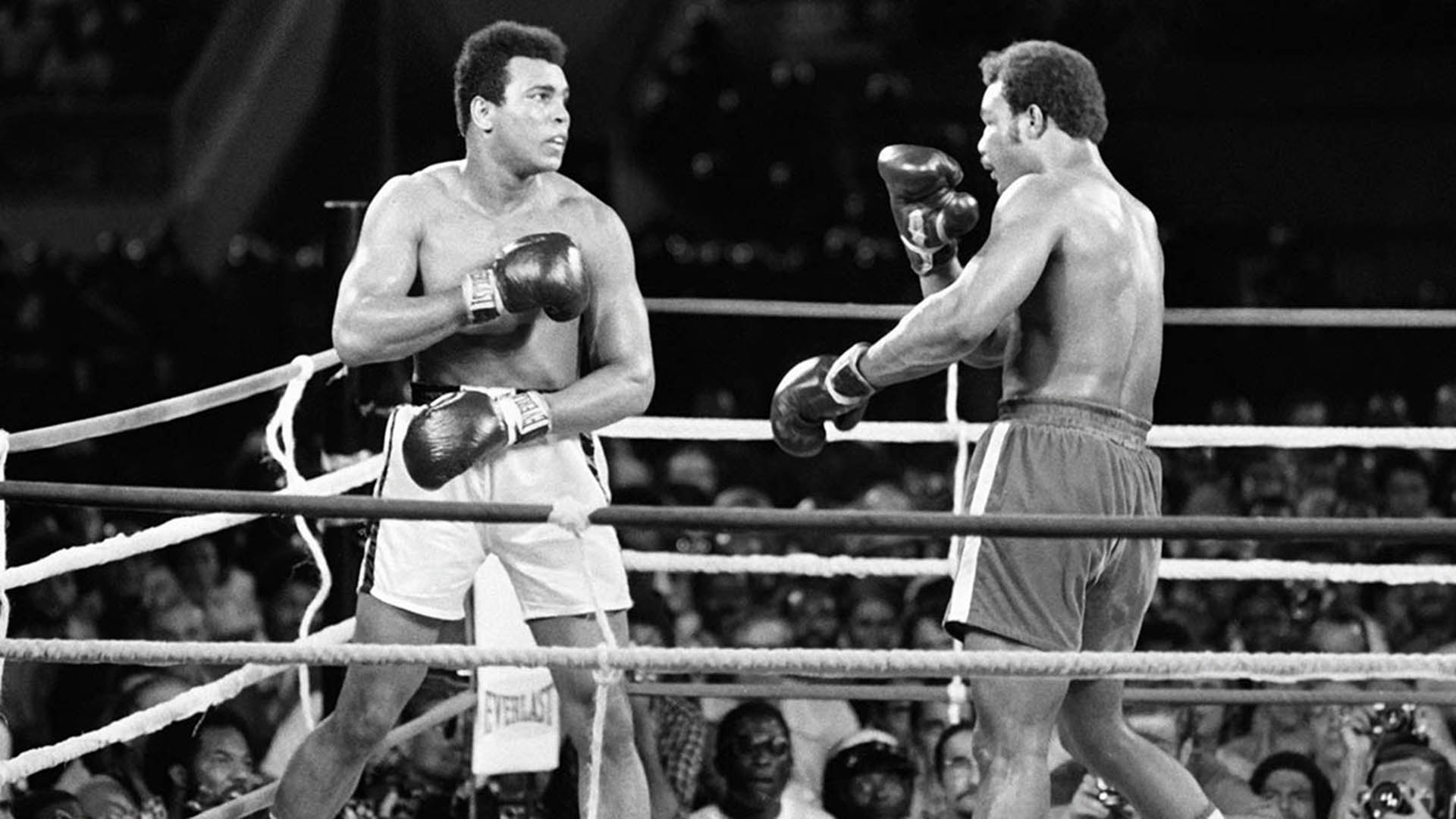
(Sandy Saddler -2001 and Archie Moore -1998-, will remain forever in the gallery of the top five of their categories).
The two young men squatted down and surprisingly jumped with their hands half-open. We were at the door of the hotel.
— “What do you guys do?” , asked my friend Emilio Ferés, a companion of a room that I remember like this: ceiling fan, crunchy wood floor, a strange smell coming from a bathroom without tiles and weak shower, where sometimes you could see some swift and indecipherable insect under one of the two beds.
— “Sont des proteines, patron”, (They are proteins, pattern), they said as they were looking for a next lobster.
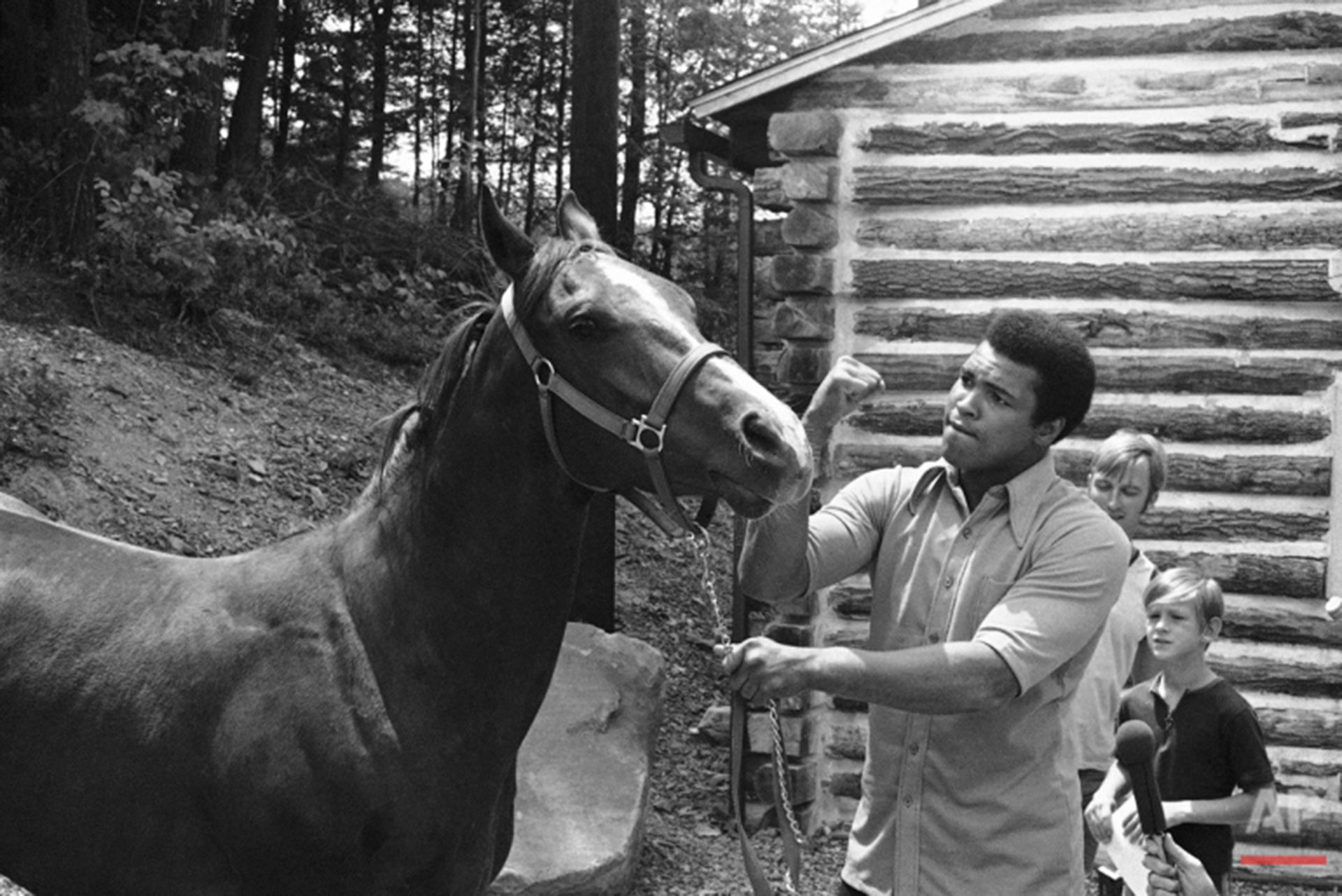
Don King was the promoter. I saw his plea before the World Boxing Association in Caracas, the day before the fight that Foreman beat Norton by KO in round 2.
They did not want to give him the Promoter's License despite having served a five-year sentence in prison, accused of “Homicide”. His own appeal speech was so great that he was given permission. And he managed to get dictator Mobutu to subsidize the fight at a rate of five million dollars for each boxer. Moreover, Mike Malitz and his young lawyer Bob Arum were the ones who, on behalf of CBS, were responsible for broadcasting to the United States and the rest of the world. The fight, which was to take place on September 25 and took place on October 30 due to an injury to Foreman — a day like today 42 years ago — began at 4 in the morning. It was very hard to get well...
The Top Rank — which is still chaired by Bob Arum — brought everything on a Hercules plane from New York. Outdoor truck, personnel, electric generator, cameras, microphones, light grills for weighing and ring. Everything, absolutely everything.
But there was a trade union problem: the Zaire guild wanted local staff to work in the “Combat of the Century”, according to its respectable labor law.
- “Not crazy,” Bob Arum refused.
Solution: the company would pay the salary to the same number of Zairian workers as to the Americans who traveled for that purpose. That is, two hundred Americans, two hundred Zairians. “The point, the director of the broadcast said disparagingly, is that they don't touch anything.”
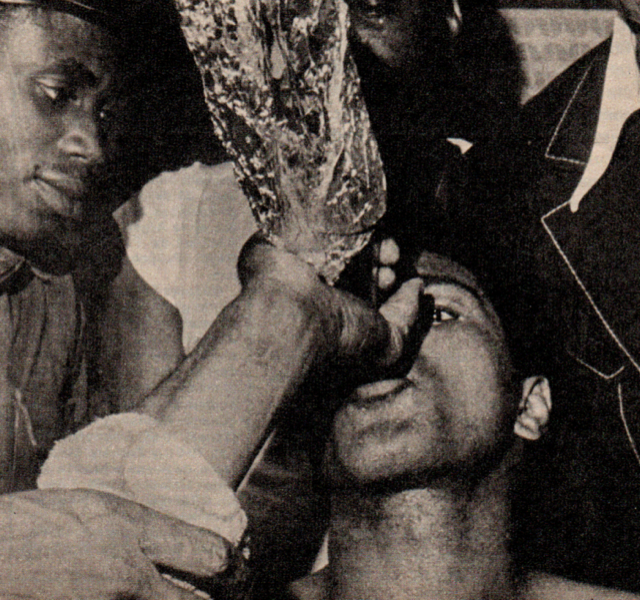
However, at the weigh-in, which would be at two o'clock in the morning of the previous day, one of the guys was given a single task: “If you see the power going out, only if it happens, you lower this lever, which is the automatic one on the generator,” they told him.
When Ali took the stage this friend misunderstood some signs or instructions and lowered the lever. Everything in the dark during the live broadcast as part of a late show of the main audience from coast to coast of the United States.
There were more than 700 journalists from all over the world. There were three of us from our country: Emilio Ferés, Manuel Sojit (“Corner”), brother of the great Luis Elias Sojit, “inventor of the sports story”. There were 60,000 spectators, most of them with free tickets. The 20 de Mayo stadium only supported Ali, who during the seven weeks he lived in Kinshasa taught them to sing: “Ali bumayé”. What did it mean, something like “Ali kill him.”
The speeches were asymmetrical. Foreman talked about how he would beat him: “Just as he did with Frazier and Norton, who are more than Ali...” And Cassius put everything into speech: “The vindication of race, religion, to redeem African ancestors, slaves of American capitalism, I come to free them, I am Allah”.
In the cabin assigned to him by the government, on the outskirts of the city, I could see him and we talked for a long time. By the way, Angelo Dundee, Dr. Ferdie Pacheco and Luis Sarría — their coaching staff — always made my job easier, wherever in the world it was. But, that day and in that cabin, there was the writer Norman Mailer, who was taking notes for his book La Pelea. And, obviously, the dialogue with him was more difficult than with Cassius, but sharing a coffee, talking about the weather, the presumed rains and the fight as mere observers, will be indelible.
— “Here the most difficult thing is to train. I'm ready, but I'm making gloves with Wiliams — his sparring — at four in the morning. So I can't go for a run, as I wish, very early, at five o'clock. So, you have to do it around eight o'clock in the evening, eat less than usual, rest until three o'clock and do a gym at four o'clock. I'm running my biological clock to kill that bastard Foreman. And I will, he swore to him that I will have no compassion.”
— “Sorry Muhammad, did you do something personal to you?” , I was encouraged to ask him.
— “Not to me, but to millions of descendants of Africans who live in my country”.
– “¿Por?”.
— “They say yes to everything, they have no rebellion, no faith, no solidarity”.

In the ring, Ali gave the most brilliant lecture that could be offered in technical, aesthetic, efficient and cerebral boxing.
He had three stages of dominance: the tactic to make room for him in the ring from where Foreman launched himself towards the discharge of blows that would always find Ali on the ropes. The strategy was to manage the maximum cost of transportation with the legs and use them only to face when leaving the string. And the psychological one, which was to dominate him by talking to him all the time, involving the public to strengthen all his things and silence any success of George, putting a lot of pressure on juries who, like the most adults, felt involuntary insomnia.
On the night of the fight, there was a single cry. And it was for Ali... Probably, at four in the morning, the temperature would have dropped by now. Instead of 40 degrees, we'd be 37. Whoever traveled the most — Foreman — spent his energies the most.
The triumph was apotheotic. The happiness of the crowd was warned. On the way to the locker room, everyone wanted to touch the new World Champion. For the second time, Cassius consecrated himself. Something that only Floyd Patterson had achieved, “against that fat Swede Ingemar Johansson”, according to Cassius.
The American press, which lived complaining about everything and comparing Kinshasa to Boston or Los Angeles, with the clock against it for the closing of its editions, attempted interrogation before Ali entered the dressing room: “They said I would win, and now? , what do they say now?” , I reproached them. “Foreman is the force, the world needs intelligence to triumph, boys. I said I would win and I won. I said that he would fall alone and although the right (that of the 8th round) was very good, it was not powerful, because he had the defeat by knockout in the soul and I had the triumph in the blood. Now I must think about how to maintain this crown. If Allah helps me, I will remain champion for a long time. I'm the best, I'm invincible.”
He was going to enter his locker room and people wouldn't let him. The father, perhaps because of the excitement, perhaps because of the heat, fainted. Someone, in chaos, stole his robe.
“Gentlemen,” said Ali, “thank you very much. I ask you to let me dress. And if someone has my robe hidden or took it without realizing it, please return it to me or donate it to some hospital so that they can convert that money into medicine.”
The sun on the horizon posed the daily challenge of showing itself and rising. People were leaving slowly. The sound of the drums, which had accompanied us all night, extinguished their euphoria because of the tiredness of their hides and drove away with percussion in agony. Children, adolescents, youth and adults were also, even once, actors of an unforgettable night of their unnoticed lives. The heavy air slowed down the steps. The heart, frenetic anticipated that I had been privileged witness to a fact that time transformed into “The fight of the century”.
To think that rehearsing possible titles in the hours when the journalist still imagines what he doesn't want, I had come up with a phrase: “Tonight boxing ran out of Clay, poor boxing”.
Today I can say what I really wanted: “Tonight boxing saw the best Clay of his life.”
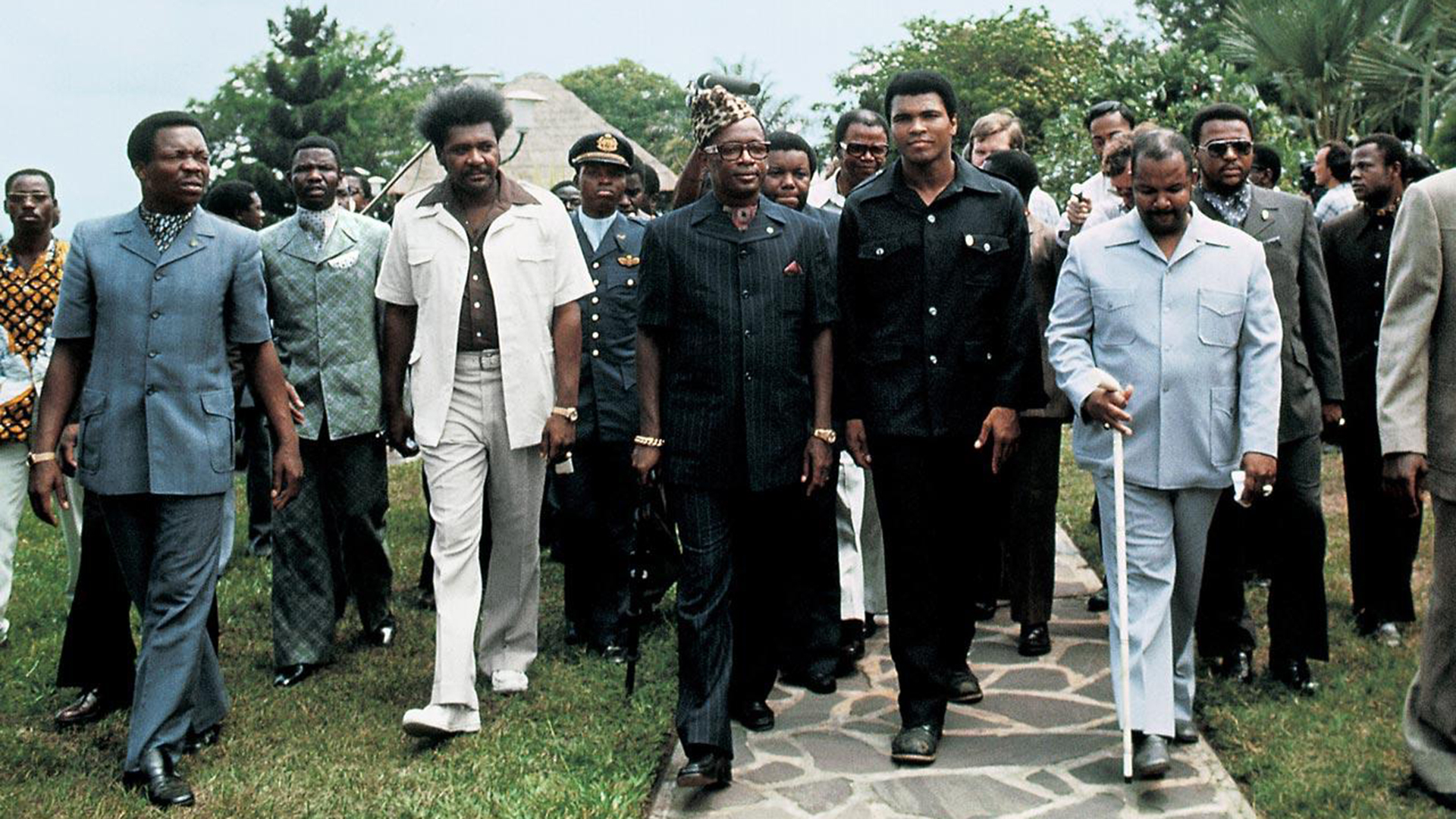
KEEP READING:
Últimas Noticias
Debanhi Escobar: they secured the motel where she was found lifeless in a cistern
Members of the Specialized Prosecutor's Office in Nuevo León secured the Nueva Castilla Motel as part of the investigations into the case

The oldest person in the world died at the age of 119
Kane Tanaka lived in Japan. She was born six months earlier than George Orwell, the same year that the Wright brothers first flew, and Marie Curie became the first woman to win a Nobel Prize

Macabre find in CDMX: they left a body bagged and tied in a taxi
The body was left in the back seats of the car. It was covered with black bags and tied with industrial tape
The eagles of America will face Manchester City in a duel of legends. Here are the details
The top Mexican football champion will play a match with Pep Guardiola's squad in the Lone Star Cup

Why is it good to bring dogs out to know the world when they are puppies
A so-called protection against the spread of diseases threatens the integral development of dogs




